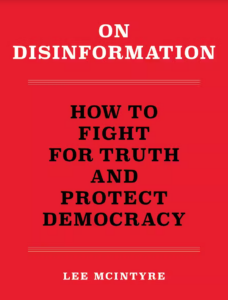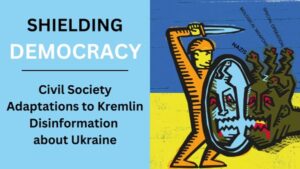As Twitter limits access to a tool to analyse conversations on the platform, researchers will be deprived of information that sheds light on political hate speech and incitement to violence. That will have real-world implications for tracking election meddling, disinformation campaigns and human rights abuses, according to Crisis Group analysts Alessandro Accorsi and Laura Courchesne:
Research better prepared civil society organisations such as the Centre for Democracy and Development-West Africa in Nigeria, Verificado in Mexico, Correctiv in Germany and Zaśto Ne in Bosnia and Herzegovina to identify and combat disinformation campaigns. Twitter’s API helped researchers discover IRA-linked coordinated disinformation activities aimed at supporting certain candidates in elections or sowing distrust in electoral processes in several African countries.
 Brazil is in the midst of a countrywide experiment in which the federal government looks to become a key protagonist in the effort to combat the spread of disinformation and antidemocratic expression. That Lula—in the name of defending democracy—would seek to restrict a technology that has been so instrumental in attempts to rescue democracy elsewhere, is curious to say the least, note CSIS experts Christopher Hernandez-Roy and Michael McKenna:
Brazil is in the midst of a countrywide experiment in which the federal government looks to become a key protagonist in the effort to combat the spread of disinformation and antidemocratic expression. That Lula—in the name of defending democracy—would seek to restrict a technology that has been so instrumental in attempts to rescue democracy elsewhere, is curious to say the least, note CSIS experts Christopher Hernandez-Roy and Michael McKenna:
Brazil’s principal response to the problem of disinformation, namely compelling social media companies to remove unsavory posts as they appear, is haphazard. Much like climate change, mass migration, and the drug war, the Gordian Knot of disinformation will invariably require solutions that go beyond the level of superficial stopgaps. This means taking steps towards addressing deficiencies in areas like civic education and media literacy, not to mention doing the heavy lifting of restoring trust in public institutions.
A couple of weeks ago, millions of Brazilians received a text from messaging application Telegram saying that Brazil was about to pass a law that would “end freedom of expression,” PRI reports:
The app also claimed that the bill would give the government “censorship powers without prior judicial oversight.” The legislation requires internet companies, search engines and social messaging services to find and report illegal material themselves, or face heavy fines.
If the past is any indication of what to expect moving forward, however, the costs associated with [these moves] vastly outweigh those associated with the former, the CSIS analysts add. In the face of creeping illiberalism and authoritarian power grabs, the citizens of democratic countries simply cannot afford such shortsighted thinking. Instead, the path to addressing these challenges should arc toward inclusive, open, and robust debate.
 What propaganda narratives does Russia use against Ukraine most often and what are the mechanisms of spreading them? What helped Ukraine resist Russian disinformation? What weaknesses exist in Europe’s information security and how can they be overcome? Speakers from VoxUkraine, Detector Media, Internews Ukraine and DT Institute discuss (above).
What propaganda narratives does Russia use against Ukraine most often and what are the mechanisms of spreading them? What helped Ukraine resist Russian disinformation? What weaknesses exist in Europe’s information security and how can they be overcome? Speakers from VoxUkraine, Detector Media, Internews Ukraine and DT Institute discuss (above).
Are democracies equipped to navigate the new landscape of political warfare? RUSI’s Alanna Putze is joined by Monika Richter of the American Foreign Policy Council and Graham Brookie of the Atlantic Council’s Digital Forensic Research Lab to explore the multifaceted scope of today’s disinformation challenge, and why tackling it is vital for democratic security.
Stanford’s Cyber Policy Center this week hosted a conversation with award-winning New York Times reporters Cecilia Kang and Sheera Frenkel on A.I.: Reporting on the New Battleground of Disinformation, Election Integrity, and Governance, moderated by Nate Persily, as part of its Spring Seminar Series.
this week hosted a conversation with award-winning New York Times reporters Cecilia Kang and Sheera Frenkel on A.I.: Reporting on the New Battleground of Disinformation, Election Integrity, and Governance, moderated by Nate Persily, as part of its Spring Seminar Series.
In his latest book, On Disinformation: How to Fight for Truth and Protect Democracy, Lee McIntyre explains how autocrats wield disinformation to manipulate a populace and deny obvious realities, why the best way to combat disinformation is to disrupt its spread, and most importantly, how to win the war on truth. McIntyre takes readers through the history of strategic denialism to show how we arrived at this precarious political moment and identifies the creators, amplifiers, and believers of disinformation.
Going to #RightsCon? Join the Forum’s @afivenson, alongside @OTsekhanovska, @VeruVichova, and @marivimarinv, for Don’t Wait For Hercules: Lessons From #Ukraine On Slaying The #Disinformation Hydra, an in-person dialogue on Wednesday June 7th, 3:15 to 4:15pm in Guanacaste 3 room. pic.twitter.com/0PnMa8UHpa
— Forum @ NED (@ThinkDemocracy) May 26, 2023







